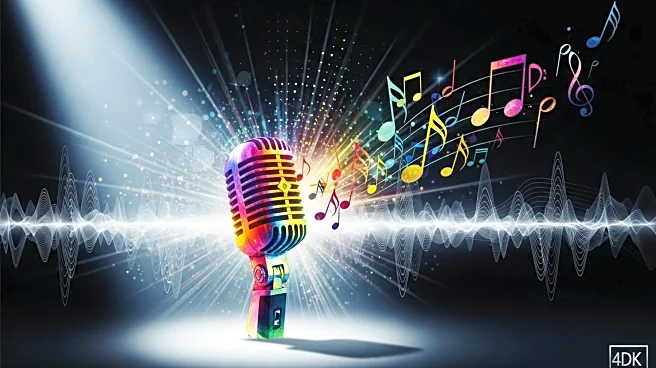What is the story about?
What's Happening?
Bad Bunny has been officially announced as the headliner for the 2026 Super Bowl Halftime Show, set to take place at Levi's Stadium in Santa Clara, California. This marks the second time the Puerto Rican superstar will perform at the Super Bowl, having previously joined Shakira and Jennifer Lopez in 2020. The announcement was made by the NFL, Apple Music, and Roc Nation during the Sunday Night Football halftime show. Bad Bunny, known for his blend of reggaeton, Latin trap, and global pop, has won three Grammys and 12 Latin Grammys. He is recognized as a global ambassador for Latin music and has appeared in films such as Bullet Train and Happy Gilmore 2.
Why It's Important?
Bad Bunny's selection as the Super Bowl halftime performer underscores the growing influence of Latin music in mainstream American culture. As one of the most-streamed artists globally, his presence on such a significant stage highlights the cultural vibrancy and diversity within the music industry. This move is likely to further elevate Latin music's profile in the U.S., potentially opening doors for more Latin artists to gain recognition. The performance also represents a celebration of Latin heritage and culture, offering representation to a demographic that has historically been underrepresented in major U.S. events.
What's Next?
Bad Bunny will take the stage on February 8, 2026, following a year after Kendrick Lamar's record-breaking performance. The anticipation for his show is high, given his dynamic stage presence and ability to connect with audiences. Fans and industry stakeholders will be watching closely to see how Bad Bunny's performance impacts future halftime show selections and the broader acceptance of Latin music in mainstream entertainment.
Beyond the Headlines
Bad Bunny's performance could have deeper implications for cultural representation in the U.S. entertainment industry. It may inspire other major events to feature diverse artists, promoting inclusivity and cultural exchange. Additionally, his role as a cultural ambassador may influence public perceptions of Latin music and its place in American society.















